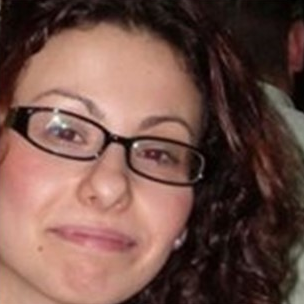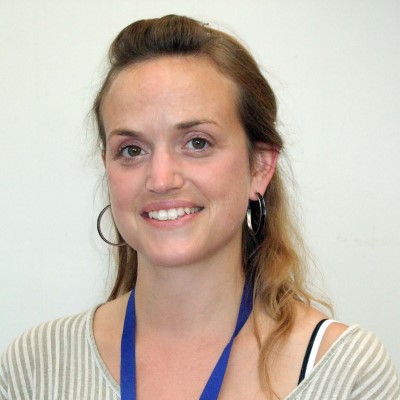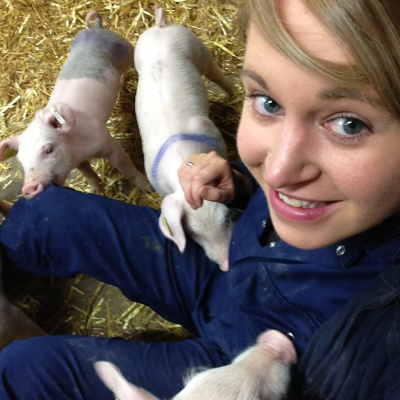CIEL | Meet the Scientist
Dr Ramon Muns
Head of Monogastric Research Group

What project/s are you currently working on?
I work on a variety of projects, mainly in pig research, but within the Monogastric Research Group we also conduct poultry research, led by Dr Elizabeth Ball.
Within pig research, we are working on feeding and nutritional management to support weaning pigs’ resilience in a Zinc Oxide ban context, focussing on strategies to ensure an optimum gastrointestinal microbiota colonization and providing diets that support pig health without compromising feed efficiency and growth.
We are also working on identifying factors contributing to sow longevity and high performance. Finally, we conduct work monitoring ammonia emissions from pig systems.
What capability are you drawing on to deliver the research?
At AFBI Hillsborough we have an excellent pig herd, producing pigs from birth to slaughter, with highly experienced staff.
Our herd operates as a commercial unit but is equipped with a state-of-the-art feeding system, feeding stations and recording equipment. We have capacity to switch between two different feeder types.
One house allows us to collect slurry from individual pens, and another that is separated from our feeding system which enables us to trial novel feedstuffs/diets in a small number of animals that will not move on to the food chain. We also have capacity to dissect and sample animals. Overall, we are able to conduct both applied and innovative research.
Across our research programme, CIEL’s support is enabling us to use novel technology such as Dual X-ray Absorptiometry (DXA) to measure body composition of animals (fat and lean content) & bone mineral density, and thermographic imaging to assess animal health & welfare and thermoregulation capacity. We are also looking into feeding behaviour of pigs as recorded in our automatic feeding stations.
Thanks to the wide expertise within AFBI, we can complement our research with microbiology, pathology, genetics and environmental measurements & assessments.
What would be your ideal research project, assuming no barriers!
What comes to my mind rather than a project would be to develop the research capability to rear pigs in metabolic pens, from weaning to slaughter, so we could add metabolic and emissions information to the performance and feeding behaviour data we already collect at an individual level: being able to add periodic saliva, urine, faecal and blood sampling to monitor immunity, oxidative stress, welfare and microbiota parameters; complemented with pathological assessment of carcasses/organs at the slaughterhouse.
Having that research capacity would allow us to study in depth a wide variety of topics, from comparing novel diets or management strategies to developing further early detection strategies for performance diseases, identifying new biomarkers and understanding why pigs differing in birth weight perform the way they do, comparing breeds/siblings showing different performance, etc.
I guess I would invest the resources to build the capacity to conduct all the projects I would like to work on rather than focussing on one.
How did you arrive at doing what you do now?
I was always driven towards livestock production, most likely because my hometown area is the second highest pig producing area in Catalonia and I worked on a couple of pig farms during university summers.
I did my veterinary degree and PhD in Animal Production at the Autonomous University of Barcelona (UAB) on piglet pre-weaning mortality, and completed internships at Universidade Estadual de Londrina (Brazil) and at the Animal Welfare Science Centre in Australia. After a 2 year post-doc placement in Thailand, continuing the work on newborn piglets and working on sow nutrition and reproduction, I started to look for a position in public or academic research within my field in Europe (exciting, but it did feel a long distance from my home in Bangkok).
Luckily, a couple of positions in the UK and EU came up that matched my CV and I happily landed in Belfast at AFBI towards the end of 2016. Working at AFBI has enabled me to expand my research expertise to most aspects of the pig production cycle, and currently I find myself leading the Monogastric Research group with an excellent team of farm staff, technicians and researchers.
How could your work benefit CIEL Members?
The combination of having a commercial-like operation farm with our state-of-the-art research technology such as the Spotmix by Schauer feeding system, DXA scanner, thermographic imaging, electronic feeders etc., coupled with our staff expertise makes AFBI a versatile partner/collaborator to deliver applied projects/trials and to participate in innovation projects. We also have good links with local industry and the capacity to incorporate the expertise from other AFBI units or branches, e.g. microbiology, genetics, diagnostics, environmental assessment into our studies.







